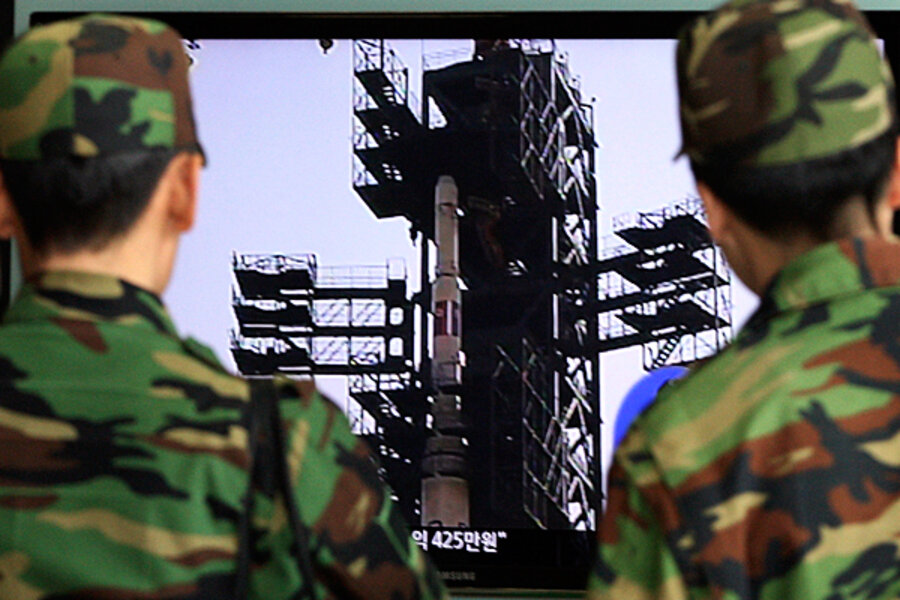Why North Korea seems willing to ignore US warnings on missile test
Loading...
| Washington
The United States said Monday that any provocative action by North Korea – either a rocket test scheduled for the coming days, or what would be the impoverished country’s third nuclear test – would only further isolate the backward communist nation.
But it appears the North Koreans see things differently, with some analysts suggesting the regime is willing to sacrifice much-needed US food aid for a chance to strengthen popular support for the country’s new leader, Kim Jong-un.
Having ushered in foreign reporters over the weekend to see the launch-ready rocket, which the government says it will fire sometime between April 12 and 16, officials appear to want to demonstrate to the North’s people that the whole world is in awe and taking notice of their great nation.
But Pyongyang’s announced plans to launch what it says is a rocket carrying a communications satellite would be “highly provocative,” State Department spokeswoman Victoria Nuland said Monday.
The rocket to be launched is – at least in theory – a long-range missile designed to reach as far as the West Coast of the US.
White House spokesman Jay Carney also called the planned launched “provocative,” and said the US is working with countries with any sway with Pyongyang – that means China – to try to persuade the North Korean regime to cancel launch plans.
Asked about indications the North may also be preparing to carry out a third nuclear test, Ms. Nuland said such a step would be “equally bad if not worse.”
South Korean officials reported Monday that recent satellite imagery shows activity, such as the piling up of earth at a key nuclear installation, suggesting that the North is preparing for a nuclear test. North Korea carried out its last nuclear test in 2009.
What concerns officials and regional experts about the planned launch is not that the rocket has any chance of reaching the US. Rather, some experts worry the launch is designed to test a prototype for a nuclear launch. Others say the biggest threat is that the unsophisticated missile will veer off course – as previous missiles launched by Pyongyang have been known to do – and enter either South Korean or Japanese air space.
Both South Korea and Japan say they will shoot down any missile entering their air space, an act that some experts fear could in turn provoke the North into taking some unforeseen retaliatory measure.
The planned rocket launch has already prompted the US to suspend the delivery of food aid it had agreed upon in talks with North Korea earlier this year. The food assistance was offered in exchange for the North’s commitment to freeze its missile testing and nuclear programs.
But North Korea experts say the regime’s decision to disregard its February agreement and proceed with the launch suggests an internal disagreement surfaced over the deal with the US. One possibility, some say, is that the military overruled a deal reached by civilian officials.
The willingness to scuttle a food deal with the US suggests the regime’s top priority at the moment is shoring up support for Kim Jong-un, in part by convincing the population that the world is transfixed by every decision he makes – like a “glorious” rocket launch.
Some experts add that, on the other hand, the physical evidence of an imminent nuclear test may be squarely aimed at the US. They speculate the North may be going through the motions of test preparations – whether or not it actually plans to carry out such a test – to present a sort of bargaining chip to coax the US to reinstate the rescinded aid deal. Under that scenario, the North would wait until after the missile launch to agree with the US to forego the nuclear test in exchange for delivery of the food aid.







